
 Some Important
People of Victorian Times
Some Important
People of Victorian Times

 Some Important
People of Victorian Times
Some Important
People of Victorian Times
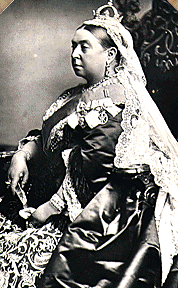 |
Victoria was born in
1819 in Kensington Palace in London. Her name was Alexandrina Victoria.
When Princess Victoria was 18 years old her uncle King William died and she became queen. She was crowned at Westminster Abbey in 1838. Victoria married her handsome cousin Albert a young prince from Germany. (She had proposed to him). Albert didn't speak English very well and lots of people didn't like him. |
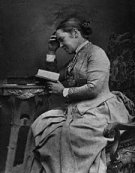 |
Elizabeth Garrett
Anderson (1836-1917)
The first woman to qualify as a doctor in Britain. She founded a hospital for poor women and children in London. |
 |
Mrs. Isabella Beeton
1836-1865
An english writer whose "Book of Household Management" was a bestseller for many years. |
 |
Alexander Graham
Bell (1847-1922)
Inventor of the telephone. |
 |
William Booth (1829-1912)
A Methodist minister who founded The Salvation Army in 1878 to preach and give help, shelter and food to poor people. |
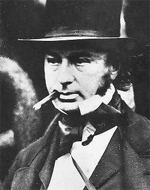 |
Isambard Kingdom
Brunel 1806-1859
Brunel was an engineer who specialised in railway traction,tunnels, steam ships and bridges. He designed the Clifton Suspension Bridge and was engineer to the Greta Western Railway. He built the SS Great eastern the largest 19th century ship. |
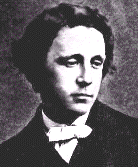 |
Lewis Carroll(1832-1898)
Real name Charles L. Dodgson, he was the author of Alice in Wonderland (1865). |
 |
Charles Dickens
1812-1870
Great novelist of the victorian age. His novels were outstandingly popular in his time and are still popular now. His books include stories about thieves, convicts and schoolboys. He wrote about ordinary people and how they lived, about terrible prisons, bad schools and the workhouse. His famous characters include Oliver Twist, Scrooge and David Copperfield. |
 |
Charles Darwin
1809-1882
An english naturalist who was famous for his famous theory of "natural selection". As a young scientist he set sail on the voyage of the Beagle in 1831 and came back with observations on the varieties of fossils and living animals which made him question the Bible's story of creation. His findings were published in "The Origin of Species" in 1859. This theory caused a real stir and was sold out straight away. |
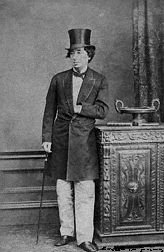 |
Benjamin Disreali
(1804-1881)
Prime Minister. An author as well as a politician Disraeli wore fancy clothes and loved to make fun of Gladstone. |
 |
Arthur Conan Doyle
(1859-1930)
He created the character Sherlock Holmes. |
 |
Thomas Edison (1847-1931)
Edison was the inventor of over a thousand ideas which transformed life in the late 19 th century. He invented his own phonograph, and developed with Swan the electirc carbon filament lamp, which eventually became the modern light bulb. |
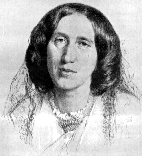 |
Mary Ann Evans
(1819-1880)
She wrote a number of books under the pen name "George Eliot". Her well known books include Silas Marner and Middlemarch. |
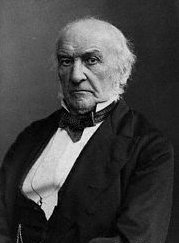 |
William Gladstone
(1809-1898)
A liberal politician who was Prime Minister four times. He was a very religious man who turned down a career in the church to become a politician. He had a strong sense of right and wrong and believed people should be judged on their merits, not on their wealth. |
 |
W.G.
Grace (1848-1915)
An all-round cricketer who broke many cricketing records and made the game widely popular. |
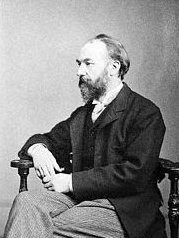 |
Thomas Hardy (1840-1928)
An English novelist and poet, born in Dorset. He wrote many stories based in the fictitious county of Wessex. These included Tess of the Durbervilles and The Mayor of Casterbridge. |
| Mary Kingsley (1862-1900)
At the age of 30 she made two adventurous trips to West Africa where she collected information about African tribal customs. |
|
 |
Joseph Lister (1827-1912)
A scottish surgeon who realised the importance of keeping wounds and equipment clean and germ free during operations. |
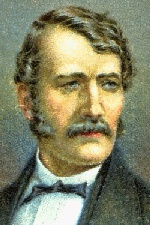 |
David Livingstone
(1813-1873)
A missionary who made three long explorations of East Africa. He wrote the story of his amazing three year journey across the African continent from the Atlantic to the Indian Ocean. He wasthe first European to see the Victoria Falls. |
 |
Florence Nightingale
(1820-1910)
"The lady with the lamp". The founder of modern nursing. In 1854 she took charge of nursing soldiers wounded in the Crimean War. She organised the cleaning of the filthy rat infested military hospital and organised proper nursing. The death rate fell dramatically. |
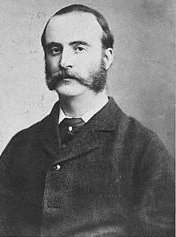 |
Charles Stewart
Parnell (1846-1891)
An Irish political leader who became an MP in 1875 and argued passionately for Irish independence. |
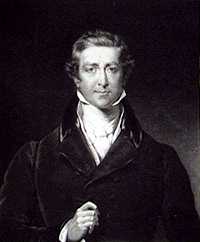 |
Robert Peel (1788-1850)
Twice Prime Minister and responsible for the repeal of the Corn Laws. |
 |
Robert Louis Stevenson
(1850-1894)
A scottish author who wrote Treasure Island and Kidnapped which are two of the most popular children's stories ever written. |
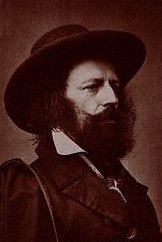 |
Alfred Lord Tennyson
(1809-1892)
The most famous Victorian poet who wrote many poems about major events such as The Charge of the Light Brigade during the Crimean War. |